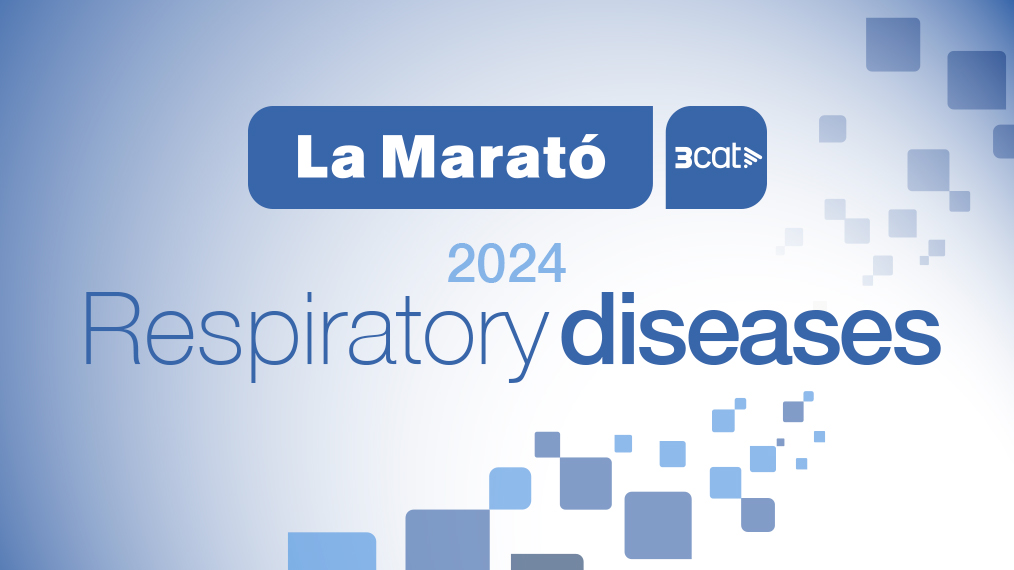Respiratory diseases

The 33rd edition of La Marató de 3Cat will take place on Sunday 15 December and will be dedicated to respiratory diseases, which affect a large part of the population and have a great impact on quality of life and life expectancy. Just in Catalonia they affect two million people and are the third-biggest cause of death with 10,000 deaths in 2022, 27 every day or one every hour. They are the second-highest reason for hospital admissions.
Respiratory diseases are those that affect the lungs, airways and all of the organs and tissues that are necessary for breathing. According to the scientific community pollution, atmospheric particles and smoking are among their leading causes though some are infectious, immune system disorders or have a genetic component. They can affect anybody and are found among all ages, with high incidence in children and the elderly.
There are around 350 respiratory diseases, of which 71 are very common such as chronic obstructive pulmonary disease (COPD), asthma and breathing allergies, sleep disorders and respiratory infections. Less common, but with high impact because of their seriousness, are pulmonary fibrosis, lung cancer and tuberculosis.
The awareness-raising and publicity campaign prior to La Marató will make it possible to bring respiratory health to the population as a whole, with special emphasis on young people, through the thousands of publicity sessions that will be held in schools. Doing so will boost knowledge of these diseases on aspects like the consequences of pollution, climate change and the promotion of healthy lifestyle habits.
Catalonia is the world leader in pneumological research. In this health field the challenge is to find the right mechanisms to extend knowledge and reduce the incidence and mortality of respiratory diseases in society. Funding from La Marató will make it possible to improve prevention, early diagnosis, appropriate treatment and rehabilitation. Incorporating telemedicine and telemonitoring into patient follow-up, finding new biomarkers and therapeutic targets, developing monoclonal antibodies for the treatment of respiratory allergies or lung cancer, and increasing technological innovation and implementing preventive screening in this field are some of the research areas that will reap the benefits.

